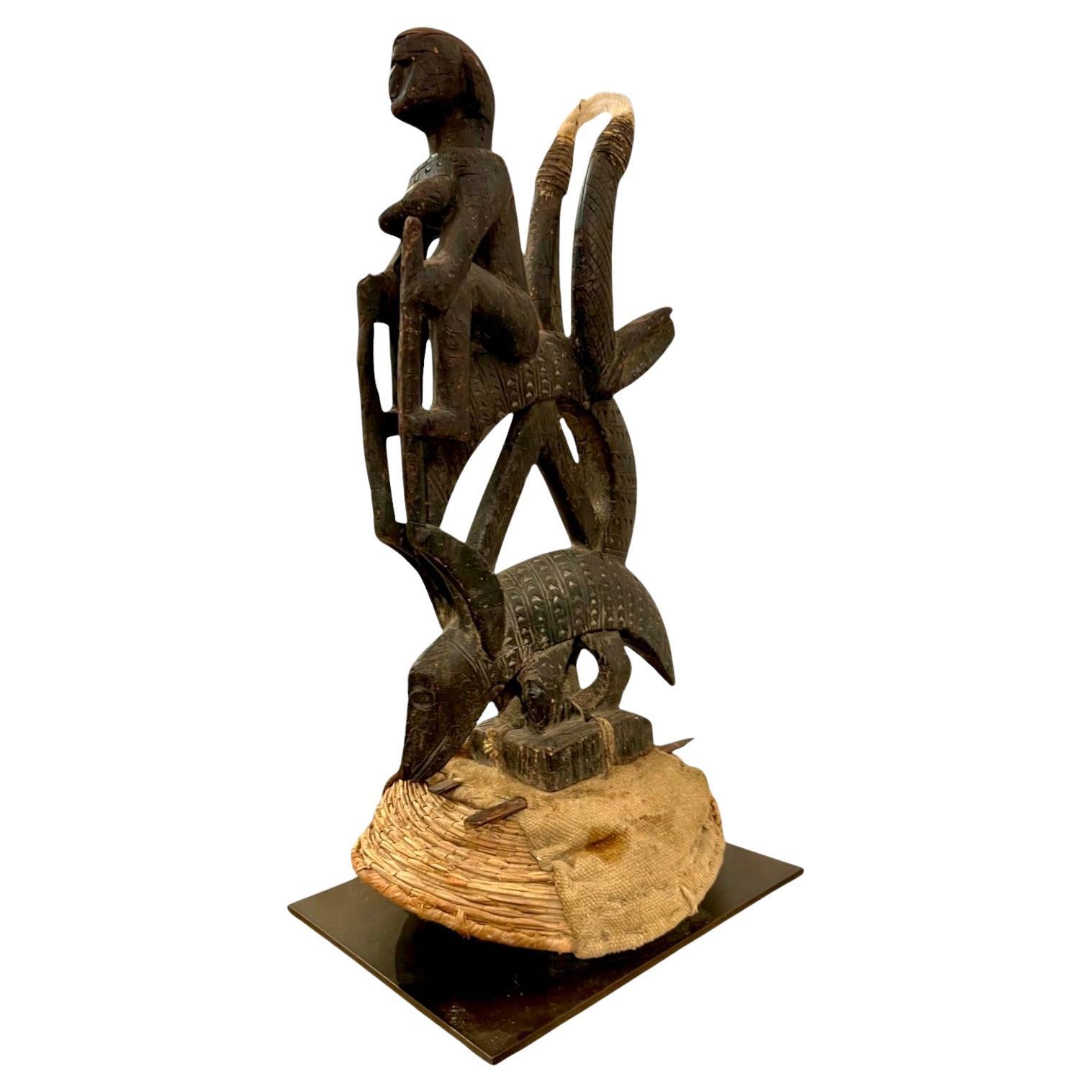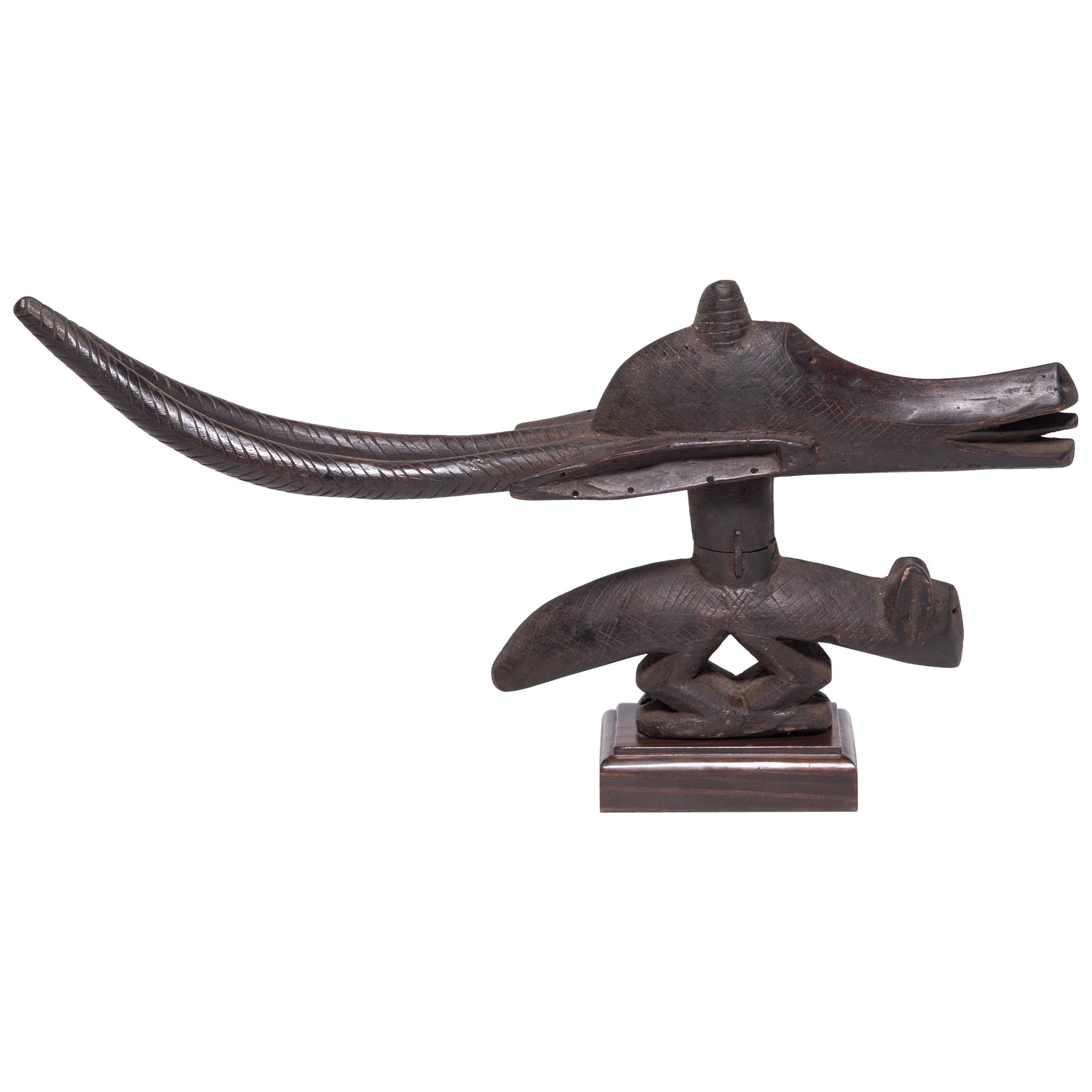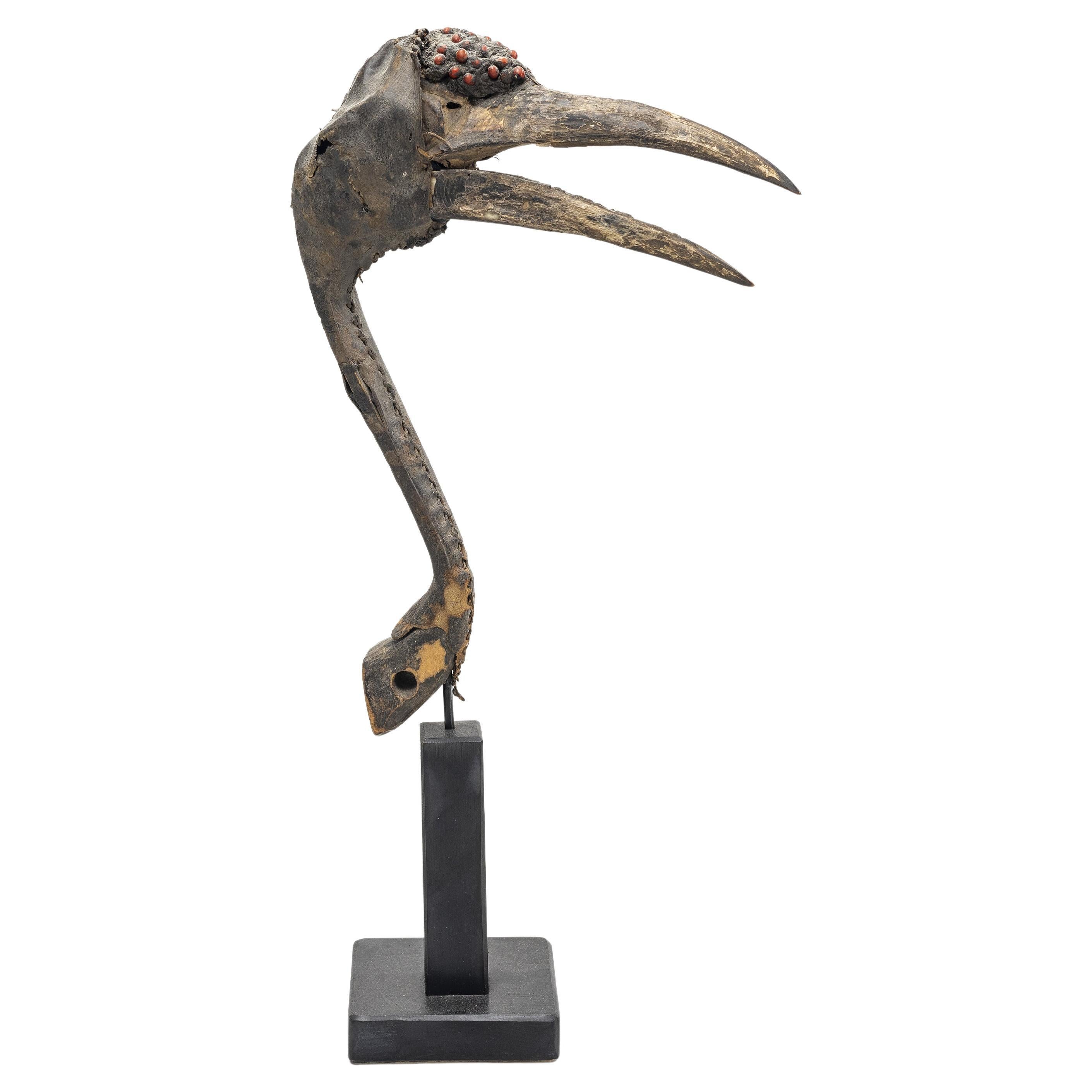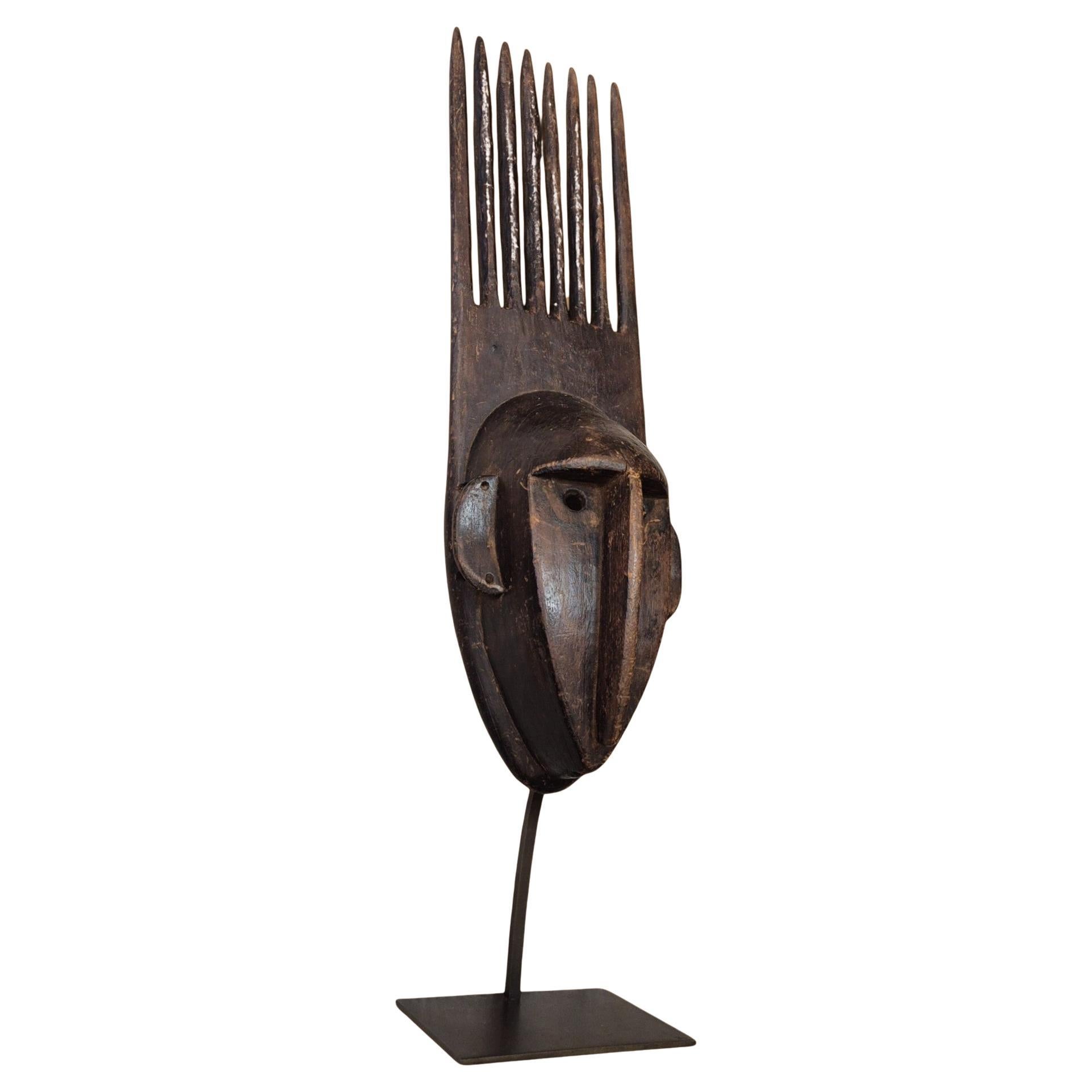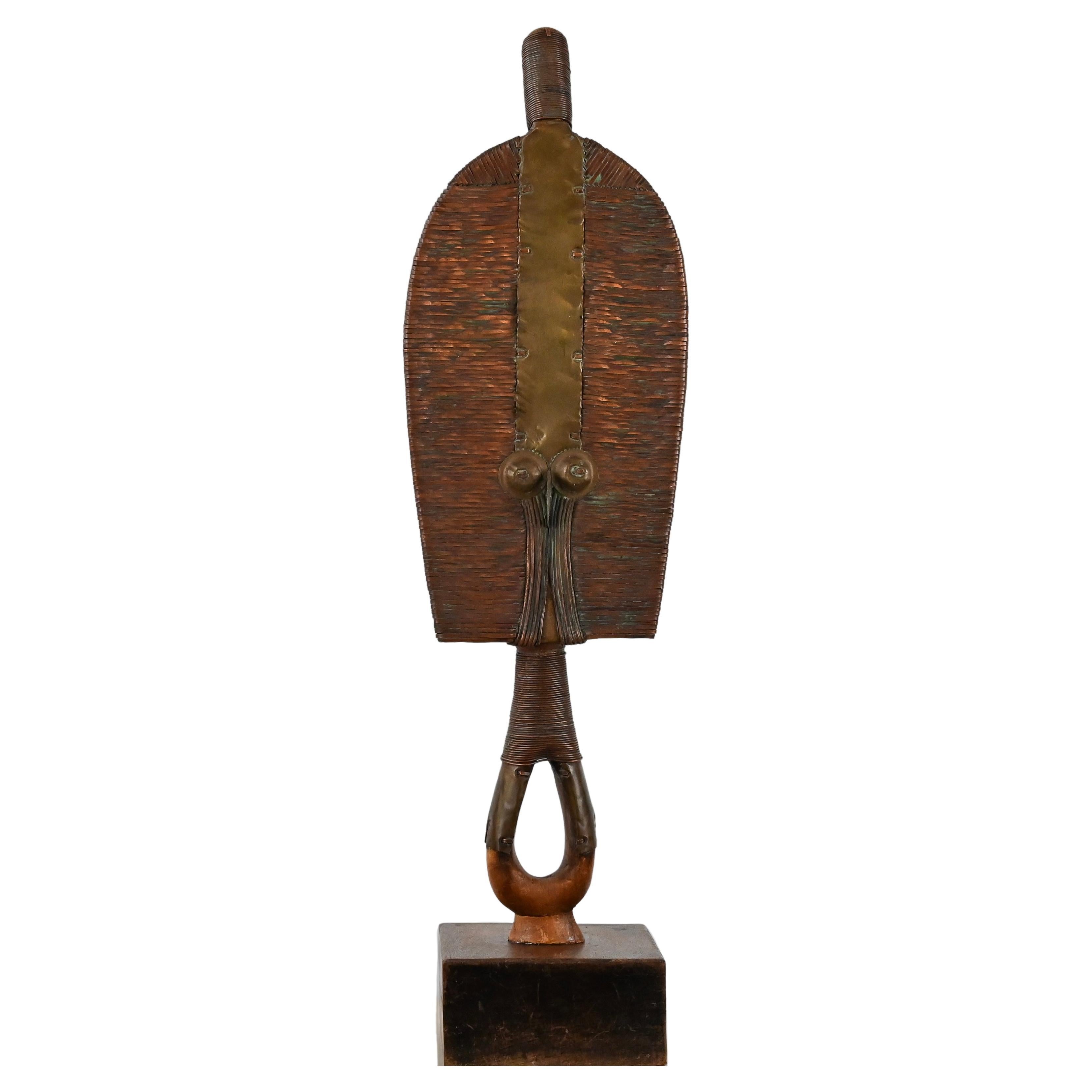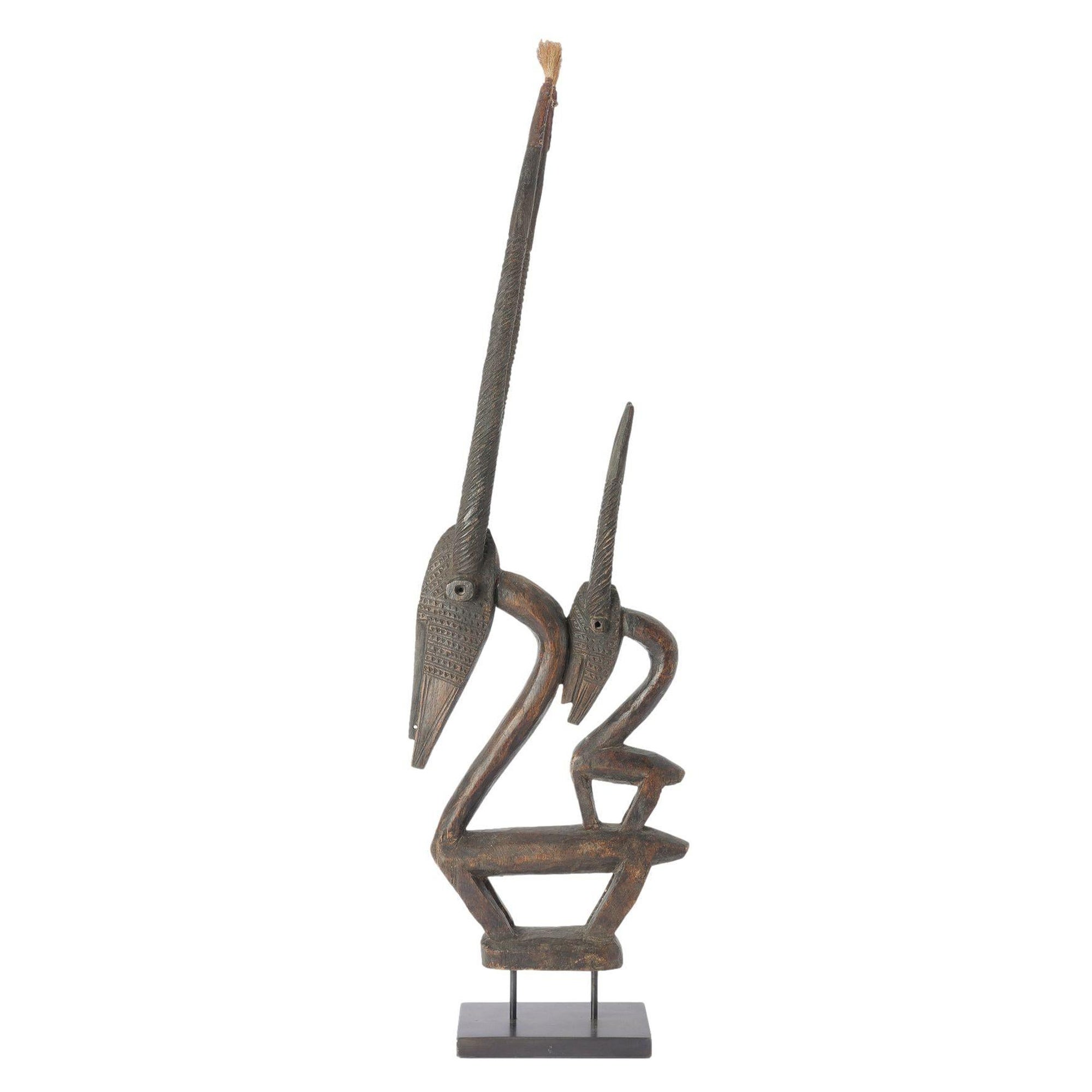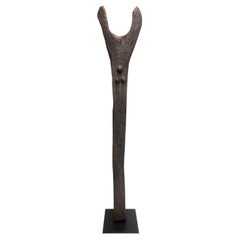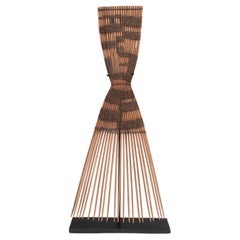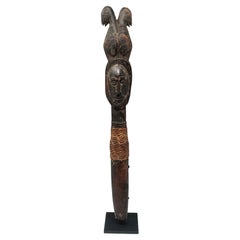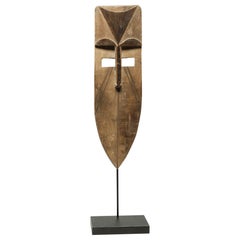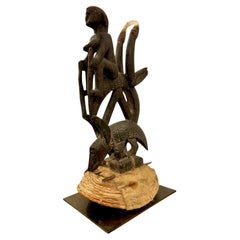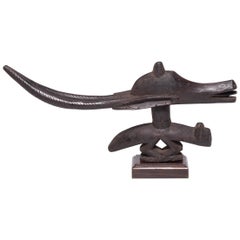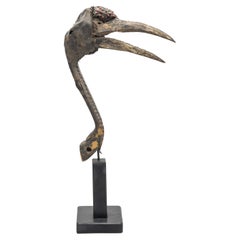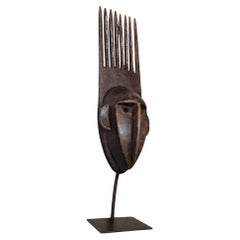Items Similar to Early 20th Century Chiwara Headdress, Bamana 'Bambara' People, Mali
Want more images or videos?
Request additional images or videos from the seller
1 of 10
Early 20th Century Chiwara Headdress, Bamana 'Bambara' People, Mali
$3,900
£2,939.50
€3,397.54
CA$5,510.68
A$6,023.37
CHF 3,172.36
MX$74,063.15
NOK 39,645.81
SEK 37,298.88
DKK 25,364.72
About the Item
Early 20th century Chiwara Headdress, Bamana (Bambara) People, Mali
Chiwara headcrests represent the antelope spirit who taught the Bamana people the fundamentals of agriculture. This one is more cubistic than many, and for that reason has a more modern appeal.
Ex Joaquin Pecci.
- Dimensions:Height: 21 in (53.34 cm)Width: 7.5 in (19.05 cm)Depth: 4.5 in (11.43 cm)
- Style:Tribal (In the Style Of)
- Materials and Techniques:
- Place of Origin:
- Period:
- Date of Manufacture:Early 20th Century
- Condition:Wear consistent with age and use. Minor losses.
- Seller Location:Point Richmond, CA
- Reference Number:Seller: ZK#27981stDibs: LU1778233689222
About the Seller
5.0
Platinum Seller
Premium sellers with a 4.7+ rating and 24-hour response times
Established in 1999
1stDibs seller since 2015
699 sales on 1stDibs
Typical response time: 2 hours
- ShippingRetrieving quote...Shipping from: Point Richmond, CA
- Return Policy
Authenticity Guarantee
In the unlikely event there’s an issue with an item’s authenticity, contact us within 1 year for a full refund. DetailsMoney-Back Guarantee
If your item is not as described, is damaged in transit, or does not arrive, contact us within 7 days for a full refund. Details24-Hour Cancellation
You have a 24-hour grace period in which to reconsider your purchase, with no questions asked.Vetted Professional Sellers
Our world-class sellers must adhere to strict standards for service and quality, maintaining the integrity of our listings.Price-Match Guarantee
If you find that a seller listed the same item for a lower price elsewhere, we’ll match it.Trusted Global Delivery
Our best-in-class carrier network provides specialized shipping options worldwide, including custom delivery.More From This Seller
View AllLarge Dogon House Post, Mali
Located in Point Richmond, CA
With a textured, slightly eroded patina, Malians used this tall house post to support a major beam in a structure. Carved from a naturally forked tree, these tall sculptural supports...
Category
20th Century Malian Other Abstract Sculptures
Materials
Wood
Mid-20th Century Ceremonial Comb, Luba People, Zaire, D. R. Congo
Located in Point Richmond, CA
Ceremonial comb, Luba People, Zaire, D. R. Congo
Made of palm leaf midribs, this large, graphic comb has a pinched waist and is held together with finely wrapped wire. Presented o...
Category
Mid-20th Century Congolese Tribal Tribal Art
Materials
Wire
Early 20th Century Sago Peg, Abelam/Wosera People, Papua New Guinea
Located in Point Richmond, CA
Sago peg, tapak, Abelam/Wosera people, East Sepik Province, Papua New Guinea
Sago pegs are used to secure a screen mesh during the preparation of sago flour. This example depicts a ...
Category
Early 20th Century Papua New Guinean Tribal Abstract Sculptures
Materials
Shell
Early Afikpo Stylized Geometric Mask, with Long Face Nigeria, West Africa
Located in Point Richmond, CA
Early finely carved African Afikpo mask with stylized geometric abstract long face.
From Nigeria close to the Cross River.
From an old collection in the Southwest.
Overall dimensi...
Category
Mid-20th Century Nigerian Tribal Tribal Art
Materials
Wood
$3,960 Sale Price
20% Off
Late 19th-Early 20th Century Hand-Forged Iron Currency, Southern Chad, Africa
Located in Point Richmond, CA
Late 19th-early 20th century iron currency, kurr, Sara-Madjingaye peoples, Southern Chad.
These rare currencies have a wonderfully minimalist anthropomorphic form, but were inspired...
Category
Early 20th Century Chadian Tribal Abstract Sculptures
Materials
Iron
Expressive Early Classic Cubist Dan Mask Early 20th Century Liberia, ex Sothebys
Located in Point Richmond, CA
Expressive early classic cubist Dan mask with refined expressive look, narrow open eyes and mouth and fine line scarification marks around outside of face. Created early 20th century by the Dan People...
Category
Early 20th Century Liberian Tribal Masks
Materials
Wood
You May Also Like
Ciwara Bambara headdress in carved wood and basketry, Mali, Early 20th century
Located in NICE, FR
A very pleasing Ciwara crest, singularly small and accompanied by its original headdress, depicting a stylized antelope leaning on a pangolin. The antelope is ridden by a woman, and white horsehair has been added to the tips of the horns. The piece is carefully sculpted, with notches decorating the bodies of the antelope and the pangolin.
Rattan, plant fiber, cowries, wood Very fine velvety mat patina, Circa 1950
An animal called Ciwara is said to have taught the Bambara how to cultivate the land, and during agrarian ceremonies, they recall the myth through the stylized representation of an antelope whose name ci wara...
Category
Early 20th Century Malian Tribal Tribal Art
Materials
Wood
Bambara Ci Wara Headdress Sculpture
Located in Chicago, IL
Carved to honor the mythical being Ci Wara, a Bambara deity that’s half mortal and half animal, this wooden headdress combines the graceful head and horns of a...
Category
Mid-20th Century Malian Tribal Abstract Sculptures
Materials
Wood
African sculpture Kanuri-Hausa Headdress, "burtu" Kanuri-Hausa, Nigeria
Located in Paris, FR
Kanuri-Hausa Headdress, "burtu" Kanuri-Hausa, Nigeria
Headdress, "burtu Kanuri-Hausa, Nigeria wood leather horn. H 42 cm. Provenance : - Swedish private...
Category
Mid-20th Century Nigerian Tribal Tribal Art
Materials
Leather, Wood
Bamana N'tomo mask, Mali, 20th century
Located in NICE, FR
Bamana N'tomo mask, Mali, 20th century
"Generally surmounted by three to eight horns forming a comb, the N'tomoface mask refers to a moment of compulsory education given to uncircumcised young boys in certain West African societies. The mask's discreet, even absent, mouth emphasizes the behavior expected of them in their future adult life after training: controlling and measuring their words, knowing how to keep quiet, preserving secrets and enduring pain in silence."
Excerpt from Masques du N'tomo, Marc Ladreit de Lacharrière Collection, Musée du Quai Branly Jacques Chirac, France.
The Bambara, or Bamana, live in central and southern Mali. Their name means “unbeliever” and was given to them by the Muslims. Animists, they believe in the existence of a creator god called Ngala, who maintains the order of the universe and coexists with another androgynous god called Faro, master of the Word, who gave all qualities to mankind and makes the fruits of the earth grow. Traditional Bamana art objects are closely linked to agrarian rites.
The Bamana dance these masks during initiation and circumcision ceremonies for young boys in the Ntomo society. The face, with its vertical outgrowths at the top, adopts geometric features beneath a rounded forehead, including an imposing busted nose, as the Bamana favor this organ in their statuary as it evokes sociability and clan cohesion. Indeed, during choreography, the dancer frequently touches the nose of the mask.
As teaching aids for candidates, masks from societies accessible to young boys and adults, such as the N'tomo, Korè and Ci wara...
Category
Vintage 1930s Malian Tribal Tribal Art
Materials
Wood
African Tribal Statue Osseyba or Reliquary Figure Kota Mohongwe Peoples Art
Located in Miami, FL
A fantastically hand-crafted piece by the Kota (or Bakota) tribe who are located in the northeastern region of Gabon. This figure, which is a Mahongwe reliquary figure as exhibited with its truncated almond-shaped face, is made of wound copper, hammered brass and wood. Reliquary figures were used as guardians to protect the revered bones of venerated family ancestors and leaders and ward off unwanted spirits. These figures are meant to embody intense powers and were also commonly used in communal rites and ritual performances.
This particular piece came from an American collector who traveled the African continent and collected African artifacts for over 50 years. This piece has a beautiful, organically aged patina acquired naturally over time and use. It is mounted on a custom wooden display stand. We believe it dates back to the early to mid-1900s but could be older. We are listing as 20th century because we did not have it appraised.
This African Tribal Statue Osseyba or Reliquary Figure Kota (Bakota) Mohongwe Peoples decorative art would clearly stand out as part of a collection or by itself in any setting. Truly unique, eye-catching and engaging.
Dimensions on stand: 25 3/4" High, 7" Wide, 5 1/2" Deep
Kota Reliquary...
Category
Early 20th Century Gabonese Tribal Abstract Sculptures
Materials
Brass, Copper
Malian Chiwara female antelope headdress on a custom stand, c. 1900
Located in Kenilworth, IL
A bold wood headdress of a female antelope, an iconic ritual figure in the Bamana society of Mali in West Africa. The Chiwara antelope is a ritual object worn as a headpiece during ceremonial dances held at sowing and harvest. The dance is performed with paired male...
Category
Early 20th Century Tribal Mounted Objects
Materials
Wool
